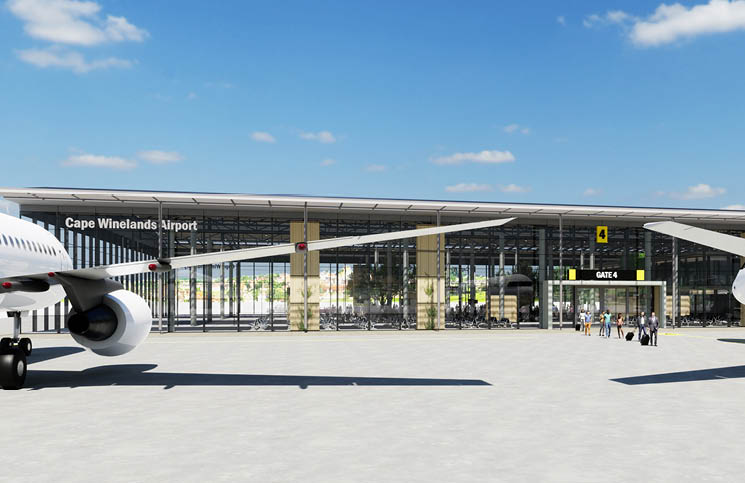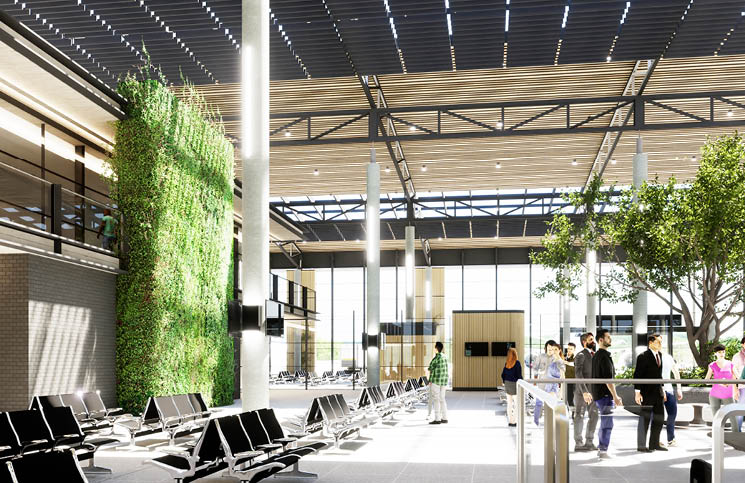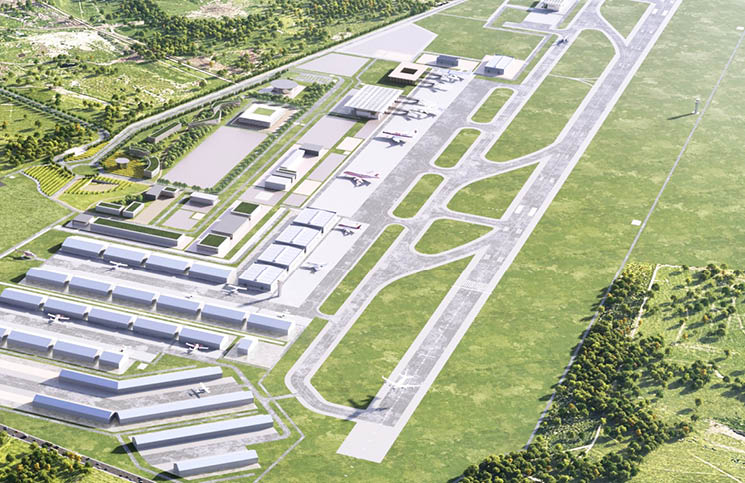The picturesque Cape Winelands region is set to soar to new heights with an estimated R7 billion airport expansion programme, marking a significant milestone in the area’s development and accessibility.
Established in 1943, Cape Winelands Airport has become an integral part of the Northern District of Durbanville, located on Lichtenburg Road (R312). As one of the oldest airfields in the region, it has primarily served the General Aviation community, playing a crucial role in the local aviation industry.
The belief that a holiday begins upon arriving at the airport is central to the airport’s expansion plan.
This plan includes incorporating vineyards into the landscape to reflect the region’s wine culture. Visitors arriving at the Cape Winelands Airport will be greeted by vineyards, open spaces, a plaza, a hotel, a conference centre, a wine tasting experience, and an outdoor amphitheater capable of hosting events for up to 5,000 people.

Additionally, an aviation museum and ample at-grade parking will be available, all within a park-like environment. In the controlled airside area, a botanical garden showcasing a diverse collection of indigenous fynbos will be a highlight, celebrating the local flora both nationally and globally.
To enhance the travel experience, the airport will offer contemporary amenities and services. These will include efficient check-in counters equipped with advanced technology, spacious and comfortable waiting lounges with ergonomic seating, and a variety of high-quality dining establishments and boutique shopping outlets. Such facilities will ensure that passengers have access to a broad array of options to meet their needs and preferences.

Cape Winelands Airport is set to become a crucial gateway to the region, offering domestic and international flight options and opening new routes. By 2050, the airport aims to handle 2,000,000 international tourists and 3,000,000 domestic travelers annually, effectively doubling the overall annual passenger traffic in the region from 10 million to 20 million. The airport is expected to significantly impact the regional economy, stimulating job creation, and contributing to the growth of local businesses and industries, especially in the logistics sector.

A commitment to sustainability is at the forefront of the airport’s design. The goal is to be as self-sufficient and off the grid as possible for water and electricity. Renewable energy sources, such as solar power and chicken manure biogas, will be harnessed to power the facilities. This shift towards self-sufficiency will not only reduce the carbon footprint but also ensure a reliable energy supply in various conditions. State-of-the-art water recycling systems and waste management practices prioritizing recycling and composting will further reduce the environmental impact.
Over the past three years, meticulous planning and extensive consultation with stakeholders from the broader aviation industry have been undertaken.
This collaborative effort underlines the commitment to delivering world-class services and facilities to passengers, airlines, and partners. Cape Winelands Airport, through years of dedicated work and strategic vision, aims to enhance the travel experience, boost operational efficiency, and remain at the forefront of innovation in the aviation sector.
“We are thrilled to introduce our airport expansion to the Cape Winelands region,” said Deon Cloete, Managing Director of Cape Winelands Airport. “This facility represents a commitment to providing world-class transportation options, promoting tourism, and stimulating economic growth in our beautiful region. Airports worldwide are known to positively impact the socio-economic conditions of the regions they serve, and we believe this airport will be no different.”

